Directorial Debuts: Part III (1960’s)
June 6, 2012 4 Comments
 Martin Scorsese, Woody Allen, Bernardo Bertolucci, Sydney Pollack, Francis Ford Coppola, Norman Jewison, Brian De Palma, Werner Herzog…just a small handful of the legendary directors who made their screen debuts in the decade of turbulence — the 1960’s. Talents like this went on to helm some of the finest films of the 70’s, 80’s and even today. But did their first films make a dynamic splash in the cinematic waters? After posting my Top 5 directorial debuts of the 2000’s and the 1970’s, here are my Top 5 Directorial Debuts from the 1960’s. Of course, this is not a list of the best directors to come out of the decade…this list is based on the filmmakers’ very first films and the impact they had on the world of movies. Take a look — and let me know who you would put on the list!
Martin Scorsese, Woody Allen, Bernardo Bertolucci, Sydney Pollack, Francis Ford Coppola, Norman Jewison, Brian De Palma, Werner Herzog…just a small handful of the legendary directors who made their screen debuts in the decade of turbulence — the 1960’s. Talents like this went on to helm some of the finest films of the 70’s, 80’s and even today. But did their first films make a dynamic splash in the cinematic waters? After posting my Top 5 directorial debuts of the 2000’s and the 1970’s, here are my Top 5 Directorial Debuts from the 1960’s. Of course, this is not a list of the best directors to come out of the decade…this list is based on the filmmakers’ very first films and the impact they had on the world of movies. Take a look — and let me know who you would put on the list!
5. Pier Paolo Pasolini (Accattone, 1961)
 A feel good film, this ain’t — but it remains a startling debut from one of Italy’s finest directors. A sort of second-wave of neorealism filmmaking, Pasolini’s focus here (as in almost all his works) is on peasant culture and the people who inhabit that world. As he always did, Pasolini hired non-actors from the area to play the roles, giving the film a genuine look and feel. Accattone (meaning “beggar”) revolves around a pimp who loses his income when his main prostitute is roughed up by rivals. Vittorio (Franco Citti) discovers a new girl and slowly lures her into her seedy new profession. The movie is beautifully shot and filled with such fascinating faces to examine. An ugly and unsettling experience, but poetic and a sure work of art. Controversial from the start, Pasolini would go on to explore the very real and very poor side of Italy’s streets in works such as the powerful Mamma Roma, Medea, and Salo.
A feel good film, this ain’t — but it remains a startling debut from one of Italy’s finest directors. A sort of second-wave of neorealism filmmaking, Pasolini’s focus here (as in almost all his works) is on peasant culture and the people who inhabit that world. As he always did, Pasolini hired non-actors from the area to play the roles, giving the film a genuine look and feel. Accattone (meaning “beggar”) revolves around a pimp who loses his income when his main prostitute is roughed up by rivals. Vittorio (Franco Citti) discovers a new girl and slowly lures her into her seedy new profession. The movie is beautifully shot and filled with such fascinating faces to examine. An ugly and unsettling experience, but poetic and a sure work of art. Controversial from the start, Pasolini would go on to explore the very real and very poor side of Italy’s streets in works such as the powerful Mamma Roma, Medea, and Salo.
4. Mel Brooks (The Producers, 1968)
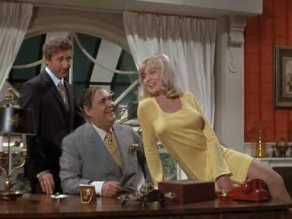 I’m not really much of a Mel Brooks fan at all, but I do love this movie. Before it became a Broadway mega-hit years later, this wonderfully funny film went on to win Brooks an Oscar for Original Screenplay. Zero Mostel is pitch-perfect as Max Bialystock, the aging producer who woos older rich women for investment money and bullies poor Leo Bloom (Gene Wilder), a feeble accountant, to try and produce the biggest flop the Broadway stage has ever seen. What’s the project? Only a love letter to Hitler, featuring the now infamous song “Springtime for Hitler.” After selling 25,000 percent of the play to investors, hiring the world’s worst stage director, and casting a bunch of misfits, Bialystock’s plan ultimately backfires and the musical is a smash. A delightful comedy classic and an impressive debut, to say the least. I may not appreciate his movies as others do, but Brooks went on to direct some classic comedic films such as Young Frankenstein, Blazing Saddles, and yes, Spaceballs.
I’m not really much of a Mel Brooks fan at all, but I do love this movie. Before it became a Broadway mega-hit years later, this wonderfully funny film went on to win Brooks an Oscar for Original Screenplay. Zero Mostel is pitch-perfect as Max Bialystock, the aging producer who woos older rich women for investment money and bullies poor Leo Bloom (Gene Wilder), a feeble accountant, to try and produce the biggest flop the Broadway stage has ever seen. What’s the project? Only a love letter to Hitler, featuring the now infamous song “Springtime for Hitler.” After selling 25,000 percent of the play to investors, hiring the world’s worst stage director, and casting a bunch of misfits, Bialystock’s plan ultimately backfires and the musical is a smash. A delightful comedy classic and an impressive debut, to say the least. I may not appreciate his movies as others do, but Brooks went on to direct some classic comedic films such as Young Frankenstein, Blazing Saddles, and yes, Spaceballs.
3. George A. Romero (Night of the Living Dead, 1968)
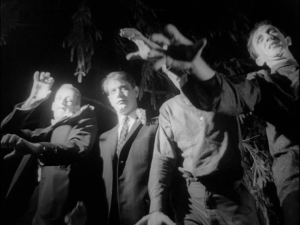 The Godfather of all zombie movies and one of the most influential horror films ever made — Romero’s debut has since spawned five sequels and two remakes…but none would come close to this stunning debut. Made on a shoestring budget (which adds to the crude and eerie feel on screen), Romero’s classic created prototype for other zombie films to follow, featuring the rural setting, young outsiders in a small group, and the political statements made in the form of allegory. The movie clearly critiques American society at the time, but it also creeps the fuck out of you. With this debut, Romero was able to define an entire genre of film — not the horror film per se, but the subgenre falling beneath it. 40+ years later, it is still gruesome, still terrifying, and still smart movie-making.
The Godfather of all zombie movies and one of the most influential horror films ever made — Romero’s debut has since spawned five sequels and two remakes…but none would come close to this stunning debut. Made on a shoestring budget (which adds to the crude and eerie feel on screen), Romero’s classic created prototype for other zombie films to follow, featuring the rural setting, young outsiders in a small group, and the political statements made in the form of allegory. The movie clearly critiques American society at the time, but it also creeps the fuck out of you. With this debut, Romero was able to define an entire genre of film — not the horror film per se, but the subgenre falling beneath it. 40+ years later, it is still gruesome, still terrifying, and still smart movie-making.
2. Dennis Hopper (Easy Rider, 1969)
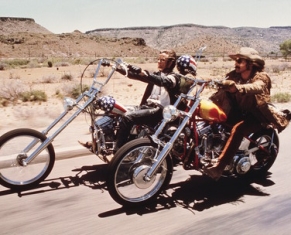 The quintessential biker flick, Easy Rider became a huge box-office success and quickly became famous for representing the 1960’s counterculture generation. Because of its enormous success, it also sparked a new wave of filmmaking that would lead well into the 1970’s. Hopper’s love letter to hippies was shot with barely any script at all, with most of the dialogue being ad-libbed. The film follows bikers Wyatt (Peter Fonda) and Billy (Hopper) as they travel America’s South trying to make it to New Orleans in time for Mardi Gras. Characters are met along the way – most who look down on the long-haired bikers. When thrown in jail for parading without a permit, they are helped out by a local attorney (Jack Nicholson), who decides to join in their travels. The film marked the “coming out” for Nicholson who received an Oscar nom. The soundtrack here is filled with staples of some great 1960’s rock and folk artists including The Band and The Jimi Hendrix Experience. Hopper’s statement on America during that time — certainly a bleak and demoralizing one — is made all too clear. He would later direct Colors, which was a very good film and a handful of others — not so good. But this, his first film, goes down in history as helping to define a generation. A brave and sincere work.
The quintessential biker flick, Easy Rider became a huge box-office success and quickly became famous for representing the 1960’s counterculture generation. Because of its enormous success, it also sparked a new wave of filmmaking that would lead well into the 1970’s. Hopper’s love letter to hippies was shot with barely any script at all, with most of the dialogue being ad-libbed. The film follows bikers Wyatt (Peter Fonda) and Billy (Hopper) as they travel America’s South trying to make it to New Orleans in time for Mardi Gras. Characters are met along the way – most who look down on the long-haired bikers. When thrown in jail for parading without a permit, they are helped out by a local attorney (Jack Nicholson), who decides to join in their travels. The film marked the “coming out” for Nicholson who received an Oscar nom. The soundtrack here is filled with staples of some great 1960’s rock and folk artists including The Band and The Jimi Hendrix Experience. Hopper’s statement on America during that time — certainly a bleak and demoralizing one — is made all too clear. He would later direct Colors, which was a very good film and a handful of others — not so good. But this, his first film, goes down in history as helping to define a generation. A brave and sincere work.
1. Roman Polanski (Knife in the Water, 1962)
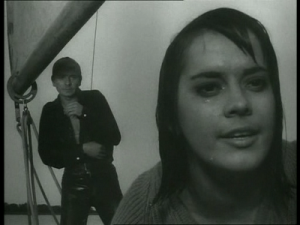 One of cinema’s most accomplished directors made a most extraordinary debut with this Polish drama consisting of only three actors. A young husband and wife drive to a lake so they can spend the day leisurely sailing together. On the way, they almost hit a young man — who is then invited to hop in and later, is even asked to join them on the boat. Not a great idea. But really, when is a hitchhiker ever a good thing? Power struggles and sexual tension between the trip ensue and Polanski gets to play with some themes that he will examine in later films in more detail. This is a remarkably intense film and no surprise that the newbie director would go on to make some of the very best films over the course of the next 40+ years, including Repulsion, Macbeth, The Pianist, Chinatown, and Rosemary’s Baby. Looking at the entire decade, this choice was a no-brainer for me — and if you’re a film buff who hasn’t yet seen it, this is a must-see.
One of cinema’s most accomplished directors made a most extraordinary debut with this Polish drama consisting of only three actors. A young husband and wife drive to a lake so they can spend the day leisurely sailing together. On the way, they almost hit a young man — who is then invited to hop in and later, is even asked to join them on the boat. Not a great idea. But really, when is a hitchhiker ever a good thing? Power struggles and sexual tension between the trip ensue and Polanski gets to play with some themes that he will examine in later films in more detail. This is a remarkably intense film and no surprise that the newbie director would go on to make some of the very best films over the course of the next 40+ years, including Repulsion, Macbeth, The Pianist, Chinatown, and Rosemary’s Baby. Looking at the entire decade, this choice was a no-brainer for me — and if you’re a film buff who hasn’t yet seen it, this is a must-see.
NEXT UP: ‘DIRECTORIAL DEBUTS PART IV’ will give us the Top 10 best debuts from the 1980’s and 90’s.
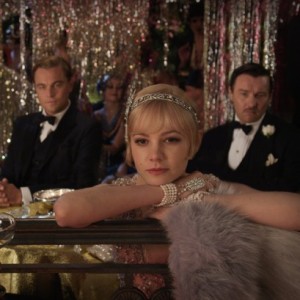

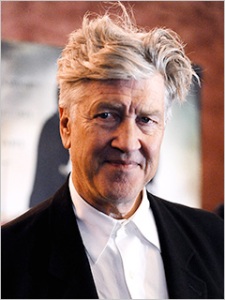
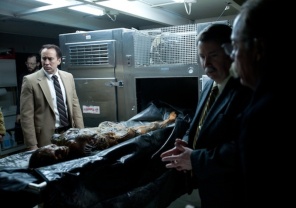


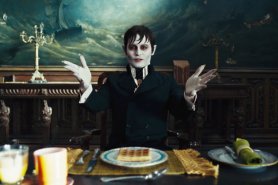




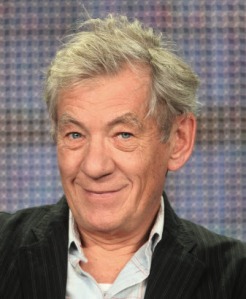
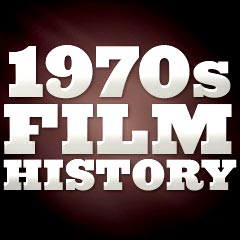
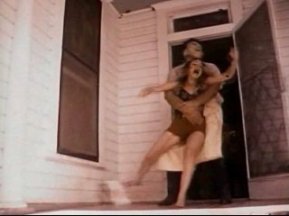


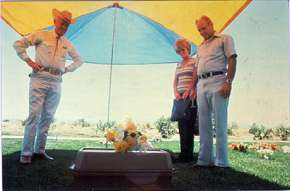
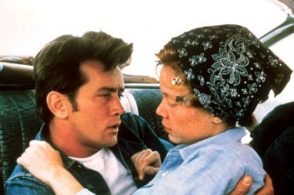

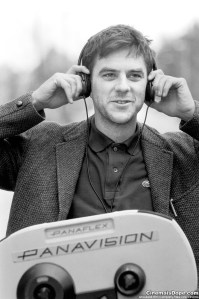


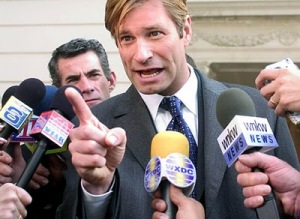
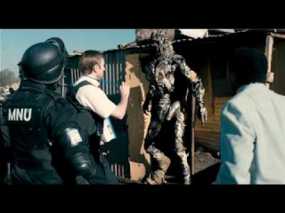

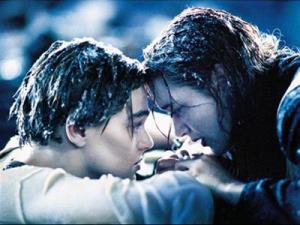

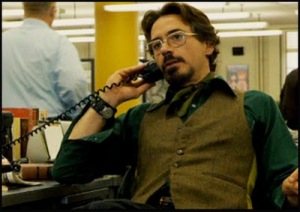

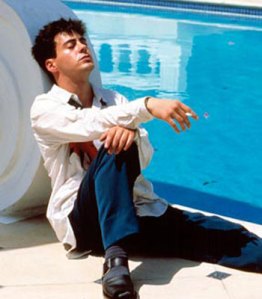



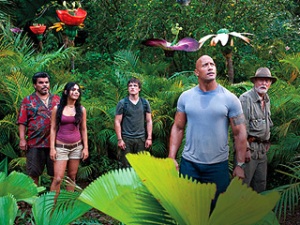






What Lantern Readers Are Saying